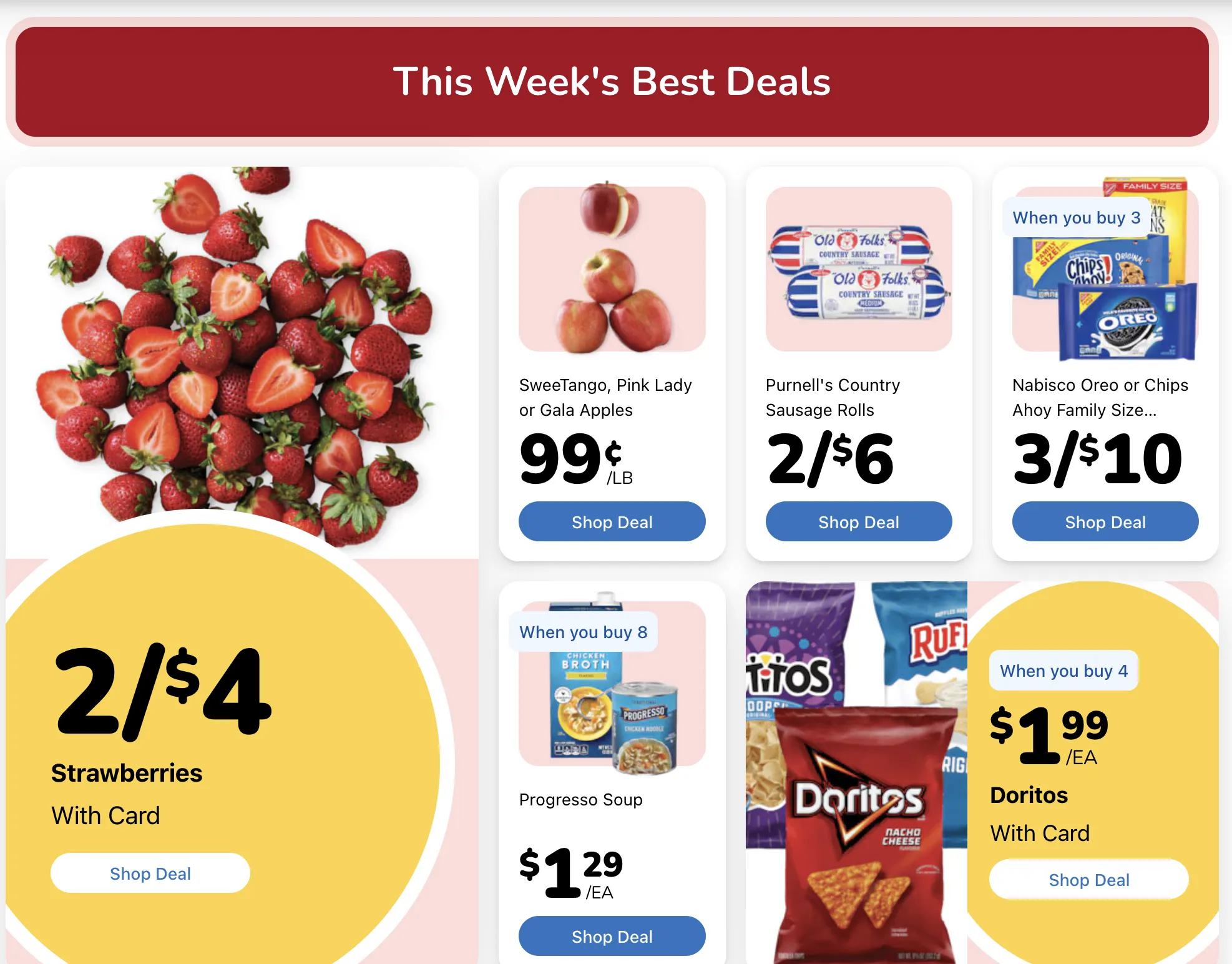October 22, 2024
Grocery store chains still use 'old-school' spying to out-price competitors. The practice has piqued antitrust interests.

Kroger ads provide competitors price information, but "spies" also visit stores in person.
When big grocery stores battle for market share, most chains deploy old-timey spies who sleuth prices, quality and customer behaviors. The "old-school tactics are fueling the government’s case against Kroger-Albertsons deal," reports Patrick Thomas of The Wall Street Journal. "Grocery-store operators scrutinize the websites and promotions of rivals and send managers to walk through competitors’ stores to help establish what shoppers will pay for items."
In the case of the proposed $20 billion merger between Kroger and Albertsons, how grocery stores compete matters. Government antitrust lawyers seek to block the merger because grocery companies "commonly use rivals’ prices as a benchmark in setting their own," Thomas explains. "Federal Trade Commission attorneys argued that Kroger won’t have the same incentive to lower prices in its stores without Albertsons. Price checks can provide a ceiling for what grocers charge shoppers."
While antitrust lawyers say competition between big grocery store chains helps keep prices down, attorneys for Kroger say merging with Albertsons will enable them to compete with Walmart. Thomas adds, "Kroger and Albertsons also said they price check against a number of different competitors in a given area, including Walmart, Target, and Amazon.com’s Whole Foods Market, not just each other."
Still, the active competition between grocers demonstrates how prices can be affected by grocery store sleuthing. James McCann, the former chief executive of grocery chain Ahold USA, told Thomas, "It’s about the perception of price in your store. If you are expensive, a lot of customers will migrate to other places." Thomas reports, "McCann said it is common to send an employee across the street to a competitor three times a week to check prices on about 30 items."
Even though Walmart is the world's largest retailer, it also uses old-school spying to gain market knowledge, and in turn, the company uses that on-the-ground information to squeeze cheaper prices out of suppliers. Thomas adds, "The retailer also has regional managers visit competitors and its buyers pressure suppliers to offer lower wholesale prices if managers find items sold cheaper elsewhere, people familiar with the process said."